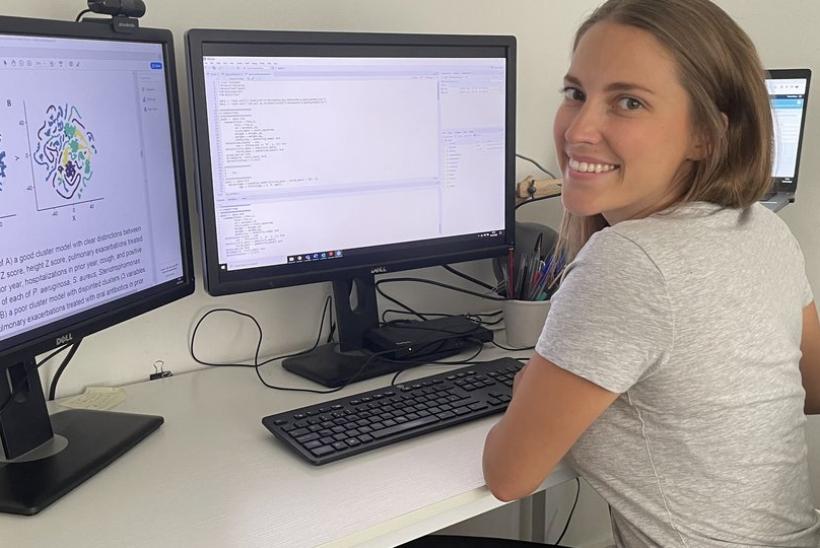New technology to support treatment for cystic fibrosis
New cystic fibrosis research takes already routinely collected healthcare data and looks for trends to improve our understanding of the condition.
Led by Dr Nicole Filipow, a researcher on the GOSH Clinical Informatics Research Programme (CIRP), this technology will hopefully lead to better outcomes for children with the cystic fibrosis.
The need to understand cystic fibrosis further
Cystic fibrosis is a genetic condition that mainly affects the lungs and digestive system. It causes many problems such as with breathing and getting enough nutrition for a young person to grow. It’s critical that children diagnosed with cystic fibrosis have treatments as soon as possible to prevent severe complications like damaged airways and infections. Each young person with cystic fibrosis needs treatments specific to them.
Learn more about how cystic fibrosis affects children.
Dr Filipow has designed a technology that uses data that is already routinely collected. This technology looks for trends to improve healthcare professionals’ understanding of cystic fibrosis and hopefully lead to better outcomes for someone with the condition.
What did the technology find out about cystic fibrosis?
This technology has the potential to support healthcare professionals to make more rapid decisions about treatments, because it can speed up their understanding of how many different things can affect a patient’s outcome.
- The technology used artificial intelligence or ‘machine learning’. It spotted patterns linking things like a patient’s treatment history or other conditions they had, with when they next needed to go to hospital or whether or not they needed antibiotics in future.
- A trend of four groups of cystic fibrosis patients were found to be associated with specific outcomes that could help clinicians to be more prepared for treatment needs.
Barriers to using machine learning in healthcare
Machine learning algorithms have the potential to support clinical decision making. Many have been developed by academics across the world, however very few are used by healthcare professionals.
As part of this work, Nicole found out why. By searching available evidence, they found that the main barriers to clinical translation include a lack of studies showing consistent results using models (reproducibility) and the accuracy of them compared to other methods (validation).
Will patients at GOSH have access to this new technology for cystic fibrosis?
Dr Filipow’s work has shown that technology can use data that is routinely collected in cystic fibrosis to spot trends and hopefully lead to patient benefits. This is because GOSH has a digital patient record that allows anonymised data to be used for research in a safe and secure way, and the expertise to look for better solutions. However, there needs to be a clearer route for technology developed in research to be translated into clinical care more effectively and Nicole hopes that her future work can help with this.
The GOSH Data Research, Innovation and Virtual Environments unit supports the development of innovation in data and digital technologies by hosting the GOSH Clinical Informatics Research Programme (CIRP), funded by GOSH Charity, as well as by providing expertise, infrastructure, and a physical space for innovation.


